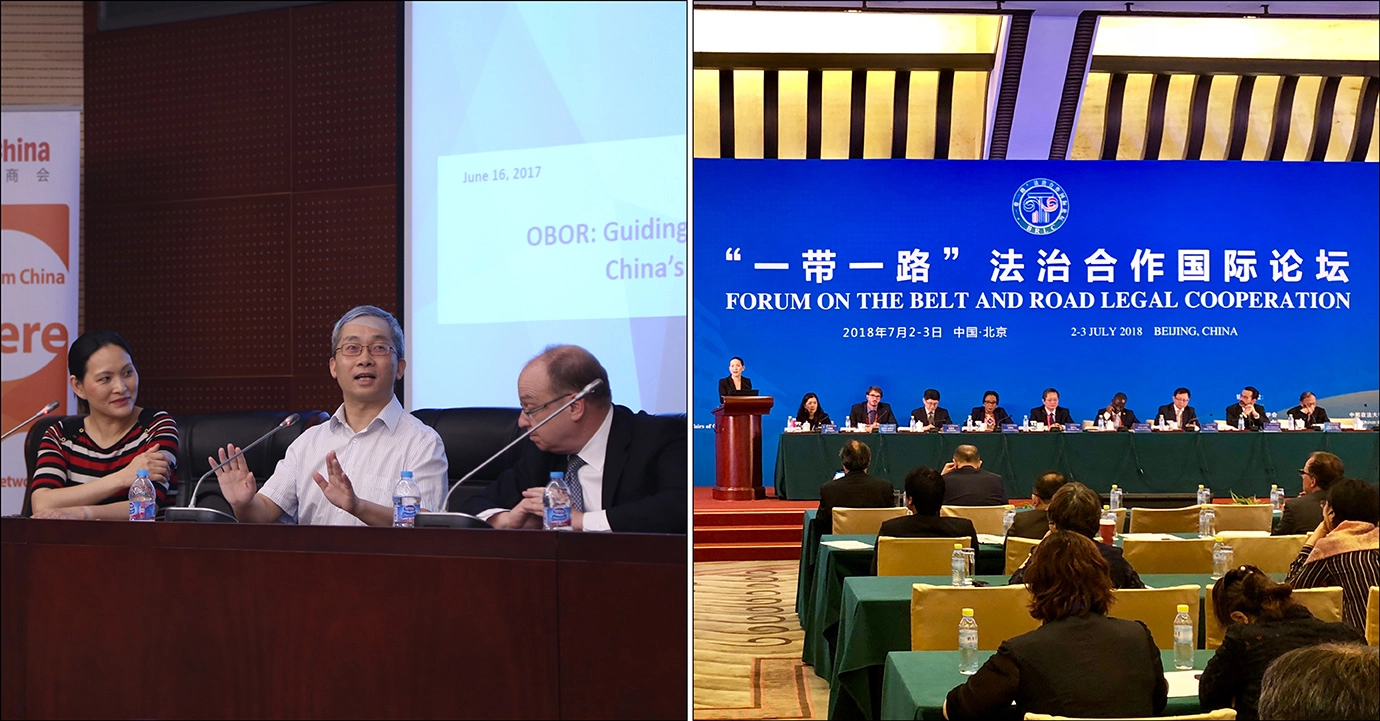China’s NEW Proactive Approach to Recognizing and Enforcing Foreign Judgments†
Table of Contents
- Guiding Case No. 235
- China’s Incremental Steps Toward Guiding Case No. 235
- Implications of Guiding Case No. 235
Estimated Reading Time
- 8 min

(Publicdomainpictures.net)
The coming into effect of China’s Foreign State Immunity Law at the beginning of 2024 has sparked concerns about how the Chinese judiciary will subject foreign states to the Chinese legal system because the law represents China’s transition from affording foreign states “absolute immunity” in Chinese courts to restricting the immunity to certain types of lawsuits. Amidst these concerns, the Supreme People’s Court just released a Guiding Case to illustrate its new, proactive approach to recognizing and enforcing foreign judgments. This approach not only evokes more optimism about the Chinese judiciary, but also increases the capacity of Chinese courts to help China revive its economy in 2025 and beyond by increasing the confidence of foreign parties in China’s willingness to recognize and enforce foreign judgments.
Guiding Case No. 235
“[Guiding Case No. 235] sets forth new principles regarding the circumstances under which a foreign court’s civil judgment or ruling can be recognized and enforced in China.”
In late November 2024, the Supreme People’s Court released Guiding Case No. 235, a de facto binding precedent (for more information about Guiding Cases, see SINOTALKS® In Brief No. 10) that sets forth new principles regarding the circumstances under which a foreign court’s civil judgment or ruling can be recognized and enforced in China.
Guiding Case No. 235 concerns three time charter contracts, through which three ships were leased in March 2010 by a company in Norway (“shipowner”) to a shipping company. A company in Shanghai issued letters of guarantee to the shipowner to guarantee the shipping company’s performance of its contractual obligations under the charter contracts. All letters of guarantee stipulated English law as the governing law and required any lawsuit arising from the letters to be adjudicated by the High Court of Justice in England (“High Court”).
The shipping company failed to pay the rent in accordance with the charter contracts. The shipowner then filed, in accordance with the letters of guarantee, a lawsuit with the High Court against the Shanghai company. In March 2015, the High Court ruled in favor of the shipowner. The Shanghai company appealed to the Court of Appeal in England (“Court of Appeal”), which dismissed the appeal in October 2016.
The Shanghai company’s failure to perform its obligations specified in the judgments and related orders (covering, for example, litigation fees and other details) rendered by the High Court and Court of Appeal prompted the shipowner to seek recognition of these judgments and orders in China. The Shanghai company opposed this application, arguing that China and the United Kingdom have not concluded or acceded to any international treaty on the mutual recognition and enforcement of court judgments and rulings, nor have the two countries established a reciprocal relationship through judicial practice. Despite this opposition, the Shanghai Maritime Court ruled in March 2022 to recognize the judgments and orders.
The Shanghai Maritime Court’s reasoning was adopted and summarized by the Supreme People’s Court in the following principles stated in Guiding Case No. 235 to guide all the courts in China:
When a people’s court determines, in its examination of an application or a request for recognition and enforcement of a foreign court’s civil judgment or ruling, whether there is a reciprocal relationship [between China and the foreign country], the relevant foreign court’s prior recognition and enforcement of a people’s court’s civil judgment or ruling is not a necessary condition [for establishing such a reciprocal relationship].
If, according to the law of the relevant [foreign] country, a civil judgment or ruling rendered by a people’s court can be recognized and enforced by a court of that country, and that country has no precedent refusing to recognize and enforce a people’s court’s judgment or ruling on the grounds that there is no reciprocal relationship [between China and the foreign country], it can be determined that there is a reciprocal relationship between China and the [foreign] country regarding the recognition and enforcement of civil judgments and rulings.
[emphasis added]
Specifically, in the case concerning the shipowner and the Shanghai company, the Shanghai Maritime Court determined that there was no evidence showing “legal obstacles [under English law] to the recognition and enforcement of Chinese court judgments and rulings in English courts”, nor was there evidence showing an English court’s prior refusal to recognize and enforce a Chinese court judgment or ruling on the grounds that there is no reciprocal relationship between the two countries. As a result, the Shanghai Maritime Court found the existence of a reciprocal relationship between China and the United Kingdom and then ruled to recognize the English judgments and orders at issue because these judgments and orders “did not violate the basic principles of Chinese law or undermine China’s national sovereignty, security, or social public interests”—requirements stated in China’s Civil Procedure Law.
China’s Incremental Steps Toward Guiding Case No. 235
“The significance of Guiding Case No. 235 cannot be fully appreciated without understanding how China has taken incremental steps to reach the milestone established in this Guiding Case.”
The significance of Guiding Case No. 235 cannot be fully appreciated without understanding how China has taken incremental steps to reach the milestone established in this Guiding Case.
Two key steps are illustrative. First, in 2017, the Supreme People’s Court released a Typical Case to highlight China’s recognition and enforcement of a Singaporean court’s civil judgment based on the principle of reciprocity (see SINOTALKS® In Brief No. 5). Second, in 2022, the Supreme People’s Court released another Typical Case to show how a South Korean court’s civil judgment was similarly recognized and enforced in China (see SINOTALKS® In Brief No. 9).
Both the Singaporean and South Korean judgments were recognized and enforced in China because of China’s reciprocal relationships with Singapore and South Korea, which were established through these two foreign countries’ prior recognition and/or enforcement of Chinese court judgments. Guiding Case No. 235 takes an even more proactive approach: Chinese courts are now allowed to take the initiative to find the existence of a reciprocal relationship with a foreign country in the absence of the foreign country’s prior recognition and/or enforcement of a Chinese court judgment or ruling, so long as the conditions stated in the Guiding Case are satisfied.
Implications of Guiding Case No. 235
As all courts in China are essentially required to cite and apply Guiding Cases in similar subsequent cases—a quality that makes Guiding Cases unique, compared with Typical Cases and other types of cases in China (see SINOTALKS® In Brief No. 4), the potential impact of Guiding Case No. 235 cannot be underestimated.
It is noteworthy that in December 2022, nine months after the Shanghai Maritime Court ruled to recognize the above-mentioned English courts’ judgments and orders, the High Court of Justice in England reciprocated by recognizing two judgments rendered by courts in China’s Zhejiang Province. This development is particularly welcome now, in light of British Finance Minister Rachel Reeves’s forthcoming meeting with Chinese Vice Premier HE Lifeng in January 2025 to restart the two countries’ high-level economic and financial dialogues, which have been paused since 2019.
The fact that the Shanghai Maritime Court’s ruling is now featured as Guiding Case No. 235 and that the Supreme People’s Court highlights the importance of “improving the mutual recognition and enforcement mechanism” of civil and commercial judgments in its Sixth Five-Year Court Reform Plan (2024-2028) should further boost the confidence of British and other foreign businesses in doing business with or in China. This is because all these developments mean that the Shanghai Maritime Court’s reasoning has already become de facto binding across China through Guiding Case No. 235 and the principles embedded in such reasoning are unlikely to change in the near future as they are in line with the focus specified in the Sixth Five-Year Court Reform Plan.
Consequently, courts in China are likely to try their best to determine the existence of a reciprocal relationship between China and other foreign countries and, thereby, treat foreign courts’ judgments favorably. With this proactive approach, Chinese courts will have more capacity to help China revive its economy in 2025 and beyond.
- The citation of this article is: Dr. Mei Gechlik, China’s NEW Proactive Approach to Recognizing and Enforcing Foreign Judgments, SINOTALKS.COM®, In Brief No. 51, Dec. 31, 2024, https://sinotalks.com/inbrief/recognize-enforce-foreign-judgments.
The original, English version of this article was edited by Nathan Harpainter. The information and views set out in this article are the responsibility of the author and do not necessarily reflect the work or views of SINOTALKS®. ↩︎







